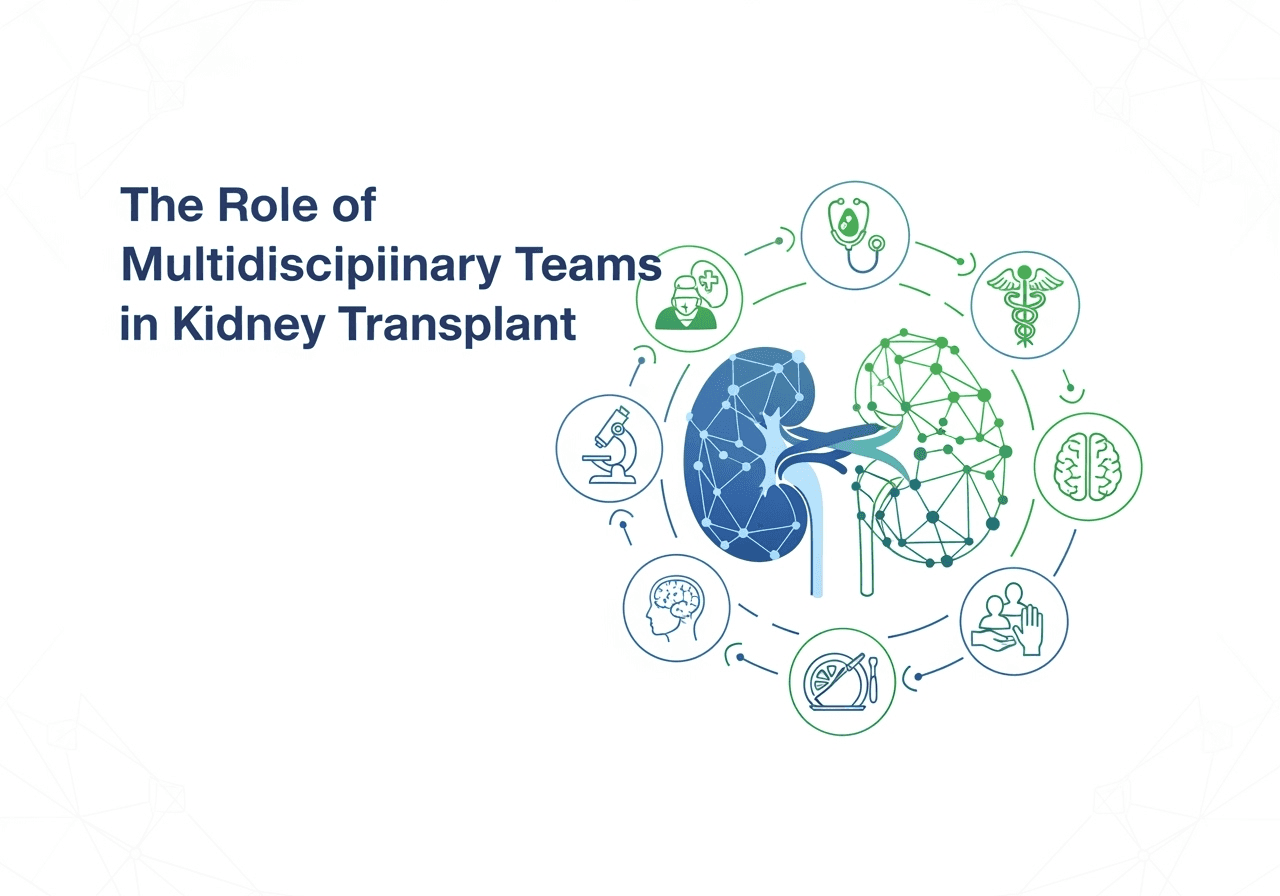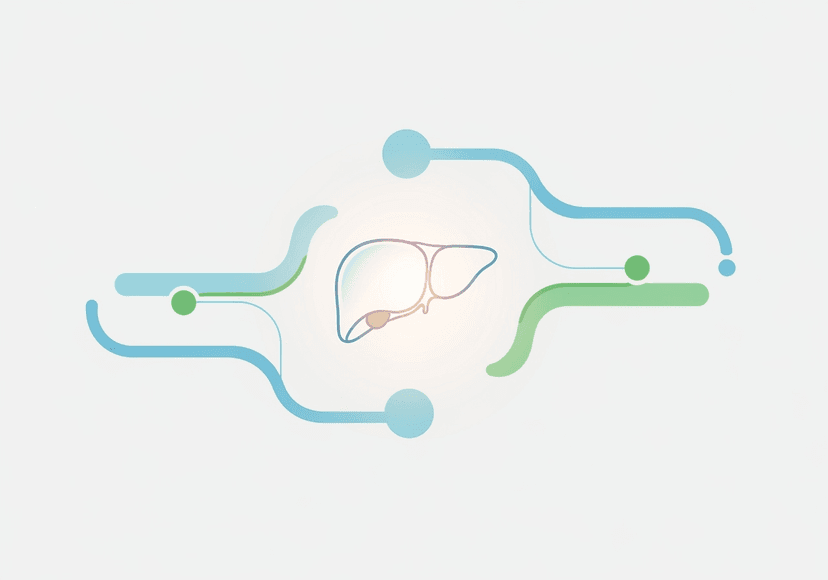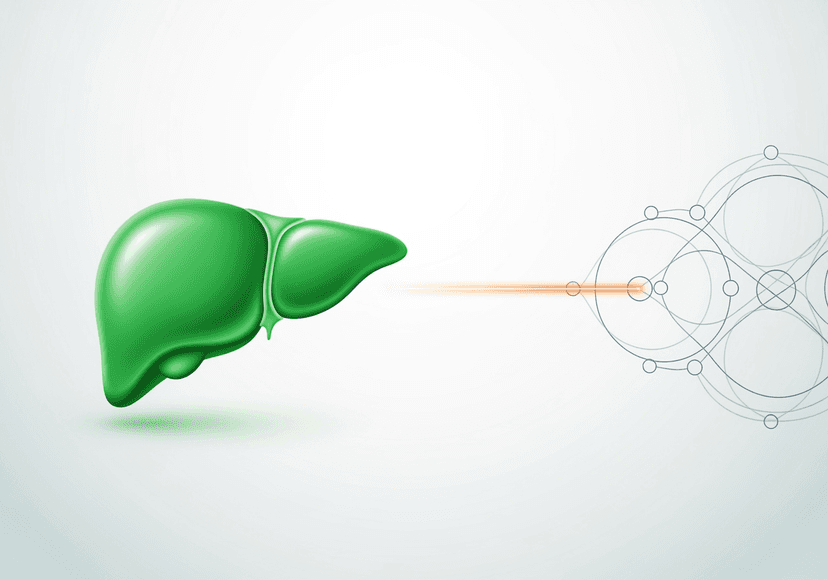
Role of Multidisciplinary Teams in Kidney Transplant
15 Oct, 2025
 Healthtrip
Healthtrip- Where Do Multidisciplinary Teams Operate in Kidney Transplant? < li>Who Composes a Kidney Transplant Multidisciplinary Team?
- Why Are Multidisciplinary Teams Essential for Kidney Transplant Success?
- How Does a Multidisciplinary Team Function During a Kidney Transplant?
- Examples of Multidisciplinary Team Contributions in Kidney Transplant.
- The Importance of Communication and Collaboration Within the Team at Fortis Memorial Research Institute, Gurgaon.
- Conclusion
The Core Components of a Multidisciplinary Transplant Team
A successful kidney transplant hinges on the effective collaboration of a diverse team of specialists. At the heart of this team is the nephrologist, the kidney expert who manages the patient's kidney disease before, during, and after the transplant. Then comes the transplant surgeon, skillfully performing the surgery and ensuring the new kidney is properly placed and functioning. Immunologists play a vital role as they navigate the complexities of the immune system, preventing rejection of the transplanted organ while minimizing the risk of infection. Specialized transplant nurses are the patient's advocates, providing education, monitoring vital signs, and coordinating care. Dietitians craft personalized meal plans to manage blood sugar and electrolytes, while psychologists address the patient's emotional well-being, coping with the anxieties that accompany such a major life event. Social workers provide practical support, connecting patients with financial resources and logistical assistance. Hospitals like Fortis Memorial Research Institute, Gurgaon, and Memorial Sisli Hospital exemplify centers equipped with robust multidisciplinary teams.
Most popular procedures in India
Roles and Responsibilities
Each member of the multidisciplinary team has distinct responsibilities, yet their contributions are intertwined, forming a tapestry of comprehensive care. The nephrologist conducts thorough evaluations to determine a patient's suitability for transplant, managing their dialysis and medication regimens. The transplant surgeon assesses the recipient's and donor's anatomy and compatibility, performing the transplant surgery with precision. The immunologist monitors immune function, adjusting immunosuppressant medications to strike the optimal balance between preventing rejection and minimizing side effects. Nurses provide diligent monitoring, administering medications, managing pain, and educating patients about self-care. Dietitians create individualized nutrition plans to address specific dietary needs, while psychologists provide counseling to help patients navigate the emotional challenges of transplantation. Social workers help patients manage the practical aspects of transplantation, such as insurance coverage, transportation, and housing. This synchronized approach, often found at leading centers like Saudi German Hospital Cairo, Egypt, minimizes errors and ensures patient safety.
Wellness Treatments
Give yourself the time to relax
Lowest Prices Guaranteed!

Lowest Prices Guaranteed!
Benefits of a Multidisciplinary Approach
The benefits of a multidisciplinary approach to kidney transplantation are profound, impacting patient outcomes at every stage of the journey. Firstly, it leads to better pre-transplant evaluation and preparation. With multiple experts weighing in, patients receive a more thorough assessment of their overall health, identifying potential risks and optimizing their condition before surgery. Secondly, it enhances surgical outcomes. Collaboration between surgeons and other specialists ensures meticulous planning and coordination during the transplant procedure, resulting in fewer complications and higher success rates. Thirdly, it improves long-term graft survival. By carefully monitoring immune function and tailoring immunosuppressant regimens, the team can minimize the risk of rejection and help the transplanted kidney function longer. Finally, it enhances patient satisfaction. Patients feel more informed, supported, and empowered when they are actively involved in decision-making and receive personalized care from a dedicated team. Consider hospitals like Vejthani Hospital that pride themselves on holistic patient care through multidisciplinary collaboration.
Improved Patient Outcomes
Research consistently demonstrates that a multidisciplinary approach to kidney transplantation leads to improved patient outcomes. Studies have shown that patients cared for by multidisciplinary teams experience lower rates of rejection, fewer infections, shorter hospital stays, and improved quality of life. The collaborative environment fostered by these teams promotes open communication, shared decision-making, and a commitment to continuous quality improvement. This translates into more effective treatments, reduced complications, and a greater likelihood of long-term success. Moreover, multidisciplinary teams are better equipped to address the complex needs of transplant patients, including psychological support, nutritional guidance, and social assistance. By providing holistic care, these teams help patients not only survive but thrive after transplantation. Healthtrip understands the criticality of these outcomes and highlights hospitals like Yanhee International Hospital recognized for its multidisciplinary approach focused on patient well-being.
Enhanced Communication and Coordination
Effective communication and coordination are the cornerstones of a successful multidisciplinary team. Regular team meetings, shared electronic health records, and clear communication protocols ensure that all members are informed about the patient's progress, challenges, and treatment plans. This fosters a culture of collaboration, where each member feels valued and empowered to contribute their expertise. When challenges arise, the team can quickly gather, discuss the situation, and develop a coordinated response. This avoids delays, minimizes errors, and ensures that patients receive timely and appropriate care. Furthermore, effective communication extends beyond the team to include the patient and their family. Patients are encouraged to ask questions, express concerns, and actively participate in decision-making. This shared understanding and open dialogue fosters trust and strengthens the patient-provider relationship. Hospitals such as NMC Specialty Hospital, Al Nahda, Dubai, understand how important this is and prioritize it in every case.
Challenges and Solutions
While the benefits of a multidisciplinary approach are undeniable, implementing and maintaining this model can present challenges. One common challenge is establishing clear roles and responsibilities. If roles are poorly defined or overlap, it can lead to confusion, inefficiencies, and conflicts. To address this, it is essential to develop written protocols that clearly delineate each member's responsibilities. Another challenge is ensuring effective communication. Different specialists may use different terminology or have different communication styles, leading to misunderstandings. To overcome this, teams can implement standardized communication tools, such as shared electronic health records and regular team meetings with structured agendas. Furthermore, logistical challenges, such as scheduling conflicts and limited resources, can hinder collaboration. Flexible scheduling, telemedicine, and efficient resource allocation can help to mitigate these challenges. Healthtrip facilitates access to hospitals like Quironsalud Hospital Murcia, that are focused on overcoming these kinds of practical challenges.
Overcoming Barriers to Collaboration
Overcoming barriers to collaboration requires a multifaceted approach that addresses both organizational and interpersonal factors. One crucial element is fostering a culture of respect and trust. Team members must value each other's expertise and contributions, creating a safe space for open communication and constructive feedback. This can be achieved through team-building activities, mentorship programs, and leadership training. Another essential component is ensuring adequate training and education. Team members should receive training in interprofessional communication, conflict resolution, and team dynamics. This will equip them with the skills and knowledge needed to collaborate effectively. Additionally, it is important to address power imbalances within the team. All members should have equal opportunities to contribute and participate in decision-making, regardless of their professional status. Hospitals like Taoufik Clinic, Tunisia focus on these elements to promote collaboration.
Future Directions and Innovations
The future of multidisciplinary care in kidney transplantation is ripe with exciting possibilities. One promising trend is the increasing use of technology to enhance communication and coordination. Telemedicine, remote monitoring devices, and artificial intelligence-powered decision support tools can facilitate collaboration among team members and improve patient outcomes. Another emerging area is personalized medicine. By integrating genomic data, biomarkers, and clinical information, teams can tailor treatment plans to individual patients, maximizing the effectiveness of immunosuppression and minimizing side effects. Furthermore, there is a growing emphasis on patient-centered care. Teams are increasingly involving patients in decision-making, empowering them to take control of their health. As technology advances and our understanding of kidney transplantation deepens, the multidisciplinary approach will become even more sophisticated, leading to better outcomes for patients. Healthtrip collaborates with establishments like Singapore General Hospital, at the front of medical innovation, to bring these advancements to patients.
Where Do Multidisciplinary Teams Operate in Kidney Transplant?
Kidney transplantation, a life-saving procedure for individuals with end-stage renal disease, isn't just a solo act; it’s a carefully orchestrated symphony. And the stage for this life-changing performance? Typically, it's within the walls of comprehensive transplant centers, such as Fortis Memorial Research Institute, Gurgaon, where advanced medical technology meets a compassionate, patient-centric approach. These centers are meticulously designed to house the complex infrastructure and specialized personnel required for every stage of the transplant process, from initial evaluation to long-term follow-up care. You'll find multidisciplinary teams hard at work in various settings within these centers. Pre-transplant clinics are buzzing with activity as patients undergo thorough assessments to determine their suitability for transplantation. Surgical suites transform into hubs of precision and expertise during the transplant procedure itself. Post-transplant units become havens of recovery, where patients receive attentive monitoring and support to ensure successful engraftment and minimize complications. Even outpatient clinics play a vital role in the long-term management of transplant recipients. Therefore, if you're exploring kidney transplant options, remember that the environment matters just as much as the expertise; centers equipped to handle the multifaceted nature of this journey are where multidisciplinary teams can truly shine, offering the best possible care. Healthtrip can help you find such comprehensive centres.
Who Composes a Kidney Transplant Multidisciplinary Team?
Imagine a superhero squad, but instead of capes and superpowers, they wield stethoscopes and specialized knowledge! A kidney transplant multidisciplinary team is exactly that – a league of exceptional professionals, each bringing unique skills to the table to ensure the best possible outcome for the patient. At the heart of this team, you'll find the transplant nephrologist, acting as the quarterback, guiding the medical management and overseeing the entire transplant journey. Next, there’s the transplant surgeon, the master of the operating room, skillfully implanting the new kidney and ensuring its proper function. The transplant coordinator acts as the patient's personal concierge, navigating the complexities of the transplant process, from scheduling appointments to providing emotional support. But the team doesn't stop there! It also includes specialized nurses, who provide round-the-clock care and monitoring, dietitians, who tailor meal plans to support kidney health, social workers, who address the psychosocial needs of patients and their families, and pharmacists, who ensure medication safety and efficacy. Depending on the patient's specific needs, the team may also include infectious disease specialists, cardiologists, and other experts. For instance, at Fortis Memorial Research Institute, Gurgaon, this collaborative approach ensures that every aspect of the patient's well-being is addressed, creating a holistic and personalized care experience. This intricate web of expertise underscores the importance of teamwork in achieving successful kidney transplant outcomes.
Why Are Multidisciplinary Teams Essential for Kidney Transplant Success?
Think of a complex jigsaw puzzle with thousands of pieces – that's kidney transplantation! No single person possesses all the skills and knowledge to put it together perfectly. That's precisely why multidisciplinary teams are absolutely essential for success. These teams bring together a diverse range of expertise, allowing for a comprehensive and holistic approach to patient care. They ensure that every aspect of the patient's journey, from initial evaluation to long-term follow-up, is meticulously addressed. The collaborative nature of these teams fosters open communication and shared decision-making, leading to more informed and effective treatment plans. For example, a nephrologist might identify a potential medical complication, while a social worker addresses the patient's anxiety about the surgery, and a dietitian fine-tunes the pre-transplant diet to optimize the patient's nutritional status. By pooling their knowledge and perspectives, the team can anticipate potential challenges and proactively implement strategies to mitigate them. Moreover, multidisciplinary teams enhance patient safety by reducing the risk of errors and oversights. The checks and balances inherent in a team-based approach ensure that no critical detail is missed. For instance, at Fortis Memorial Research Institute, Gurgaon, the multidisciplinary team works seamlessly to provide patients with the best possible care, improving their chances of a successful transplant and a healthier future. This collaborative approach isn't just a nice-to-have; it's a necessity for navigating the complexities of kidney transplantation and achieving optimal outcomes. With Healthtrip, you can explore options with the best multidisciplinary teams.
Also Read:
How Does a Multidisciplinary Team Function During a Kidney Transplant?
The choreography of a kidney transplant involves a highly orchestrated effort, and the multidisciplinary team acts as the conductors of this complex symphony. From the initial evaluation of the patient to the long-term follow-up care, each member plays a vital role in ensuring the best possible outcome. The team’s function begins with comprehensive assessments to determine a patient's suitability for transplant. This includes medical, surgical, and psychosocial evaluations to identify any potential risks or challenges. Imagine a patient, filled with hope and anxiety, walking into Fortis Memorial Research Institute, Gurgaon, for their initial assessment. The team, with their combined expertise, meticulously reviews their medical history, conducts thorough examinations, and addresses their concerns with empathy. This initial phase is crucial for setting realistic expectations and tailoring the treatment plan to the individual's needs.
Once a patient is deemed a suitable candidate, the team collaborates to create a personalized care plan. This plan encompasses every aspect of the transplant process, from pre-operative preparation to post-operative rehabilitation. Regular team meetings are held to discuss the patient’s progress, address any emerging issues, and make necessary adjustments to the plan. Effective communication is paramount, with each member providing updates and insights from their respective areas of expertise. Picture the transplant surgeon at LIV Hospital, Istanbul, conferring with the nephrologist, dietitian, and social worker to optimize the patient's condition before surgery. This collaborative approach ensures that all aspects of the patient's well-being are addressed, leading to a smoother and more successful transplant journey. The team also plays a crucial role in educating the patient and their family about the transplant process, potential risks and complications, and the importance of adherence to the post-transplant medication regimen.
The day of the transplant is the culmination of meticulous planning and seamless teamwork. The surgical team, led by experienced transplant surgeons, works in tandem to carefully remove the donor kidney and implant it into the recipient. Simultaneously, the anesthesiologist monitors the patient's vital signs and ensures their comfort throughout the procedure. Nurses provide critical support, managing medications, monitoring fluid balance, and anticipating the surgeon’s needs. It’s like watching a well-rehearsed ballet, with each member moving with precision and purpose. Post-transplant, the multidisciplinary team continues to provide comprehensive care, monitoring the patient for signs of rejection or infection, adjusting immunosuppressant medications as needed, and providing emotional support. The team at Singapore General Hospital, for instance, would closely monitor the patient’s kidney function, blood pressure, and overall health, making adjustments to the medication regimen as necessary.
Examples of Multidisciplinary Team Contributions in Kidney Transplant.
To truly grasp the impact of a multidisciplinary team in kidney transplant, let's delve into specific examples of how each member contributes to the patient’s overall well-being. Imagine a patient at Fortis Hospital, Noida, struggling with uncontrolled diabetes, a common comorbidity in kidney transplant candidates. The endocrinologist steps in, working closely with the dietitian to develop a tailored meal plan and medication regimen to stabilize blood sugar levels before the transplant. This proactive approach minimizes the risk of complications during and after the surgery. The transplant surgeon, drawing on their expertise, carefully assesses the patient’s vascular anatomy and plans the surgical approach to ensure optimal blood flow to the new kidney. This meticulous planning reduces the risk of vascular complications, a leading cause of early graft failure.
Post-transplant, the nephrologist plays a crucial role in monitoring kidney function and managing immunosuppressant medications. The pharmacist ensures that the patient understands the importance of adhering to their medication regimen and provides strategies for managing potential side effects. Envision a scenario where a patient at Jimenez Diaz Foundation University Hospital, Madrid, begins to experience symptoms of rejection. The nephrologist promptly orders a biopsy to confirm the diagnosis and adjusts the immunosuppressant medications to suppress the immune response. The social worker provides emotional support to the patient and their family, helping them cope with the stress and uncertainty of the situation. This comprehensive approach, addressing both the physical and emotional needs of the patient, is essential for long-term transplant success. The infectious disease specialist, on the other hand, would be vigilant in monitoring for and treating any infections, a common complication in immunosuppressed patients. They would work closely with the pharmacist to select the appropriate antibiotics and adjust the dosage based on the patient’s kidney function.
Furthermore, consider a patient at Vejthani Hospital, Bangkok, struggling with anxiety and fear about the transplant process. The psychologist provides counseling and support to help the patient manage their emotions and develop coping strategies. The patient advocate acts as a liaison between the patient and the medical team, ensuring that their voice is heard and their needs are met. These examples highlight the multifaceted contributions of the multidisciplinary team, demonstrating how their collective expertise and compassionate care can transform the lives of kidney transplant recipients. Each member's unique skills and perspectives are essential for navigating the complexities of the transplant journey and achieving the best possible outcomes. From the initial evaluation to the long-term follow-up, the team’s collaborative approach ensures that the patient receives comprehensive and personalized care, maximizing their chances of a healthy and fulfilling life.
Also Read:
The Importance of Communication and Collaboration Within the Team at Fortis Memorial Research Institute, Gurgaon.
Communication and collaboration form the bedrock of any successful multidisciplinary team, and this is particularly true in the high-stakes world of kidney transplantation. At Fortis Memorial Research Institute, Gurgaon, the team understands that seamless communication is not just a nice-to-have, but a necessity for ensuring patient safety and optimizing outcomes. Regular team meetings, both formal and informal, provide a platform for sharing updates, discussing challenges, and making collaborative decisions. These meetings are not just about exchanging information; they are about fostering a culture of mutual respect, open dialogue, and shared responsibility. Imagine the transplant surgeon at Memorial Sisli Hospital, Istanbul, raising a concern about a patient’s declining kidney function during a team meeting. The nephrologist, pharmacist, and dietitian immediately chime in with their perspectives, collaboratively brainstorming potential causes and solutions. This open exchange of ideas leads to a more comprehensive understanding of the problem and a more effective treatment plan.
Effective communication extends beyond formal meetings. The team utilizes various communication tools, such as electronic medical records, secure messaging platforms, and shared online workspaces, to facilitate seamless information sharing. This ensures that all members are kept in the loop about the patient’s progress, test results, and any changes in their condition. Consider a scenario where the social worker at Saudi German Hospital Cairo, Egypt, learns that a patient is struggling with financial difficulties accessing their post-transplant medications. They immediately communicate this information to the pharmacist and patient advocate, who work together to find resources and support to help the patient afford their medications. This proactive approach prevents the patient from experiencing potentially life-threatening complications due to medication non-adherence. Furthermore, collaboration involves not just communication but also a willingness to learn from each other’s expertise and perspectives.
The team at Bangkok Hospital recognizes that each member brings unique skills and knowledge to the table, and they actively seek to leverage this diversity to improve patient care. The nurses, who spend the most time with the patients, provide valuable insights into their physical and emotional well-being. The dietitians offer expertise in nutrition and can tailor meal plans to meet the specific needs of each patient. The psychologists provide counseling and support to help patients cope with the stress and anxiety of the transplant process. By valuing and integrating the contributions of all team members, the team at Fortis Memorial Research Institute, Gurgaon, creates a collaborative environment that fosters innovation, improves patient outcomes, and enhances the overall transplant experience. This emphasis on teamwork not only benefits the patients but also creates a more rewarding and supportive work environment for the healthcare professionals involved. The shared sense of purpose and collective responsibility fosters a strong team spirit, which translates into better care for the patients.
Conclusion
In conclusion, the multidisciplinary team approach is not merely a best practice in kidney transplantation; it is the cornerstone of successful patient outcomes. By bringing together a diverse group of experts, each with their unique skills and perspectives, the team can provide comprehensive and personalized care that addresses the multifaceted needs of kidney transplant recipients. From the initial evaluation to the long-term follow-up, the multidisciplinary team works collaboratively to optimize the patient's physical and emotional well-being, minimize the risk of complications, and maximize their chances of a healthy and fulfilling life. The team at NMC Specialty Hospital, Al Nahda, Dubai, understands that successful kidney transplantation requires more than just a skilled surgeon; it requires a coordinated effort from a team of dedicated professionals who are committed to providing the best possible care. Effective communication, mutual respect, and a shared sense of responsibility are essential for fostering a collaborative environment where all team members can thrive.
The examples discussed throughout this blog highlight the transformative impact of the multidisciplinary team approach. Whether it's the endocrinologist at Mount Elizabeth Hospital, Singapore, stabilizing a patient's diabetes, the pharmacist at Quironsalud Hospital Murcia, Spain, ensuring medication adherence, or the psychologist at Cleveland Clinic London, UK, providing emotional support, each member plays a vital role in the patient's journey. As Healthtrip continues to connect patients with world-class healthcare providers, the importance of the multidisciplinary team approach cannot be overstated. We are committed to partnering with hospitals like Fortis Memorial Research Institute, Gurgaon, and Memorial Bahçelievler Hospital, Istanbul, that embrace this collaborative model of care, ensuring that our patients receive the best possible outcomes. Ultimately, the success of kidney transplantation lies not just in the technical expertise of the surgical team but in the collective wisdom, compassionate care, and unwavering dedication of the multidisciplinary team.
Therefore, if you or a loved one is considering kidney transplantation, remember that you are not just entrusting your care to a surgeon; you are entrusting it to a team of dedicated professionals who will work tirelessly to support you every step of the way. Choose a hospital that prioritizes the multidisciplinary team approach, and you will be well on your way to a healthier and more fulfilling future. Healthtrip is here to guide you in finding the best care possible, connecting you with hospitals and teams that truly understand the complexities and nuances of kidney transplantation. From providing information and resources to coordinating your travel and accommodations, we are committed to making your journey as smooth and stress-free as possible. With the right team by your side, you can face the challenges of kidney transplantation with confidence and hope, knowing that you are receiving the best possible care.
Related Blogs

Post-Liver Transplant Diet and Lifestyle Tips
Detailed guide on liver transplant, featuring doctors, hospitals, risks, recovery,

Common Risks in Liver Transplant and How Healthtrip Manages Them
Detailed guide on liver transplant, featuring doctors, hospitals, risks, recovery,

Is Liver Transplant Right for You? Healthtrip Explains Evaluation Steps
Detailed guide on liver transplant, featuring doctors, hospitals, risks, recovery,

Role of Multidisciplinary Teams in Liver Transplant
Detailed guide on liver transplant, featuring doctors, hospitals, risks, recovery,

Healthtrip's Trusted Hospitals for International Liver Transplant Patients
Detailed guide on liver transplant, featuring doctors, hospitals, risks, recovery,

Who Should Consider Liver Transplant? Healthtrip Expert Insights
Detailed guide on liver transplant, featuring doctors, hospitals, risks, recovery,










